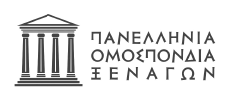News & Announcements
All news and announcements
Red... The colour of spring in the Greek countryside!
The best way to welcome May is with one of the most characteristic flowers symbols of spring, the poppy!
In May poppies are everywhere in Greece, from the seashores and the fields until the archaeological sites.
In Greece there are 10 from the total 100 varieties that exist all over the world. The most common is the Paoaver rhoeas. You can see it in May and June in the Greek countryside. It's a delicate flower, whose petals blossom only for one day.
For the ancient Greeks the poppy was considered symbol of fertility and it was the sacred flower of the Goddess Demetra, the Goddess of Agriculture and Fertility. The ancient Greek name was mikon. According to the myth Mikon was a handsome man, with whom Demetra fell in love and converted him into a poppy! During the Eleusian Mysteries, that were held every year to honor Demetra, the participants decorated the statues of the Goddess with poppies.
The poppy is connected to the Underworld as well. It is related to the sons of Hades, Hypnos (personification of sleep) and Thanatos (death). They are depicted either with wreaths of poppies on their heads or holding these flowers. This can be explained, if we think that different kind of poppies can cause either sleep or even death.
The poppy has got many healing properties, that the Celts were aware of since 1000 B.C. This is reflected in the name, which comes from the Celtic word "papa", which means baby food. The Celts put poppy juice in the baby cremes as a medicine against the diseases. Modern medicine confirms that. It's a remedy against jaundice and colic of babies.
In contrast to the poppies that produce the narcotic opium, the poppy of the Greek countryside isn't addictive. It can be used sometimes as a mild painkiller and a remedy against cough, because it has got sedative and palliative properties.
Finally, the use of poppy doesn't stay only in medicine. It's used in pastry, cooking and baking. The poppy seeds are ideal garnish for breads, rusks, croutons and salads, because they offer a special flavor and artistic quality.
Author, Pictures: Katerina Kyriaki
Edited: Zeta Drimaliti, Marianna Filippoglou
















